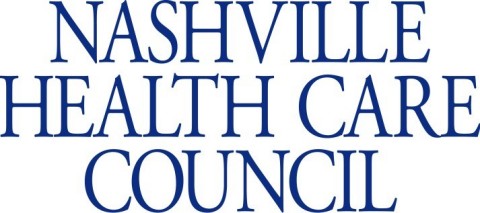NASHVILLE, Tenn.--(BUSINESS WIRE)--Today, a crowd of more than 300 Nashville Health Care Council member executives gathered to hear from national thought leaders on a topic that is top-of-mind for most players and pundits in health care: interoperability. Zane Burke, president of Cerner, joined Mike Schatzlein, M.D., senior vice president and group ministry operating executive, Ascension Health, in a discussion moderated by Ed Cantwell, executive director, Center for Medical Interoperability.
Click
here to view photos from the event.
Photo Credit:
Donn Jones
The term interoperability includes all the technology involved in patient care, from medical devices and tests to the electronic health records that hold a patient’s medical data and history. While there has been great investment in these technologies, few of these elements currently communicate with one another, causing inefficiencies.
“As more providers realize the benefits of true interoperability, a clear picture is starting to take shape in the market: Either you’re going to be open and interoperable, or you’ll be obsolete,” Burke said. “It’s encouraging to see more organizations choose the promise of patient-centric data exchange rather than the closed and dated systems of the past, but interoperability isn’t just about what’s good for Cerner’s business – it’s about doing the right thing by our patients and clinicians.”
The trio discussed interoperability’s significance from the perspective of patients, providers and industry innovators, as well as key barriers to achieving interoperability.
“The current system is inefficient and puts strain on clinicians as they treat patients,” said Schatzlein, who is also vice chairman of the Center for Medical Interoperability board. “A truly interoperable health system will significantly improve the safety and quality of care, enable innovation, and remove cost from the system.”
The Center for Medical Interoperability recently moved its headquarters to Nashville, Tenn., home to world leaders in the areas of hospital management, ambulatory and outpatient surgery, long-term care, behavioral health, population health, academic research, and health information technology.
The Center has a goal to connect the nation’s network of devices and software by developing a “plug-and-play” system that shares data in a standard, nonproprietary way.
The panelists agreed that the health care industry, rather than the government, should lead interoperability, and the Center is the right vehicle in which to develop the solution.
“Nashville has become a focal point where the nation’s health care leaders come together to solve their shared problems and drive the future of health care,” Cantwell said. “We established our headquarters here to be part of this collaborative, innovative community.”
Cantwell pointed out that medical interoperability could save the U.S. health care system as much as $30 billion a year by reducing mistakes and inefficiencies.
Today’s program was presented by BlueCross BlueShield of Tennessee. Supporting sponsors were Bass, Berry & Sims, Cressey & Company, KPMG and LifePoint Health.
About the Nashville Health Care Council
The
Nashville
Health Care Council is a premier association of health care industry
leaders working together to further establish Nashville’s position as
the nation’s health care industry capital. Supported by nearly 300
corporate members, including local and national health care companies,
the Council serves as a trusted source for information on trends that
influence the health care industry. The organization provides members
with one-of-a-kind networking opportunities and access to Nashville’s
elite health care business community.
Worldwide, Nashville’s health care industry generates more than 500,000 jobs and $73 billion in annual revenue. The industry is Nashville’s largest and fastest-growing employer. For more information on the Council, please visit www.healthcarecouncil.com.




